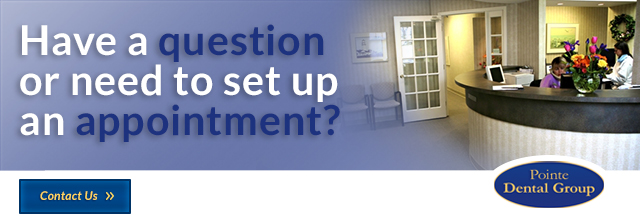
Your permanent teeth are only permanent if you take care of them. Poor dental care, injuries or health complications can lead to tooth loss. Whether the tooth loss was preventable or not, how you handle it afterward is within your control.
It’s important to understand that a lost tooth isn’t the end of the story. Learn about the ramifications of leaving gaps in your tooth line and what you can do to prevent these issues.
What Tooth Loss Can Mean for Your Mouth
Increased Risk of Gum & Periodontal Disease
Your mouth is full of bacteria, no matter how frequently you brush, floss, use mouthwash or visit the dentist. The deeper bacteria can hide, the more damage your mouth will sustain. The gaps left behind from tooth loss are the perfect hiding places for bacteria!
You typically think of gum disease as a cause of losing teeth, but the reverse is true as well. The longer bacteria can spend hiding in the recesses left by missing teeth, the more irritation they will cause to your gums and the more likely you are to progress to advanced periodontal disease.
Your Teeth Will Shift
Even permanent teeth aren’t fully set in place. If they were, orthodontic treatment wouldn’t exist!
When you suddenly lose a tooth, the neighboring teeth will begin to slowly shift to fill in the gap. They will often do so by tilting inward, leaving you with an awkward bite. It only takes one small gap to impact several of the surrounding teeth!
Beyond affecting your bite, the new position of your teeth makes oral care more difficult:
- New gaps for bacteria to hide in
- Some surfaces of your teeth will become harder to brush
- The gap of the lost tooth may become “covered” with a leaning tooth, leaving it nearly impossible to clean without the help of your dentist
You’ll Overcompensate When Eating
Eating without a tooth that you’ve been used to for decades is uncomfortable. Most people react to a lost tooth by eating with the other side of their mouth. This means your healthier teeth will be subjected to more friction and wear than they normally would be.
Over time, compensating for the lost tooth can mean your other teeth are assaulted by more sugar, bacteria and tartar than they otherwise would have been. The long-term effects could mean more cavities, gum disease or even more tooth loss!
Loss of Bone
Like icebergs, your teeth go far deeper than the surface section that you’re familiar with. The roots and tissues below, inside the gum, go all the way to the bone in your jaw. Pressure and movement with your teeth stimulate these roots, which in turn stimulate the bone.
Tooth loss causes the loss of these roots as well. Once the roots cease to stimulate the jaw, your body begins a process known as bone resorption. Essentially, your body decides that without anything happening in that section of bone, the minerals would be better used elsewhere in the body.
Once the process of bone loss begins, it can weaken the area around the loss tooth, leading to even more health risks with your mouth. With just a few lost teeth, your jaw bone can lose significant mass, which will alter the appearance of your face and cause problems with chewing and long-term oral health!
Solutions for Tooth Loss
Losing a tooth can happen for a variety of reasons. While tooth decay and poor oral care is preventable, sudden injuries or accidents aren’t always avoidable. Fortunately, dentists can help with tooth restoration!
Dental Implants – Dental implants have come a long way. They’re fantastic at replicating natural teeth, including being anchored to your jaw bone to help prevent bone loss.
Bridges – A less expensive option than implants, bridges use neighboring teeth to help anchor them in place. They won’t last as long and won’t feel as natural as an implant, but they can be helpful as a stop-gap measure while you look into more permanent solutions. They’re also helpful if you’re missing more than one tooth in the same area of your mouth.
Dentures – Dentures come in different types, such as partial dentures, implant-supported dentures or full dentures. They’re good options when you’re missing several teeth.
Pointe Dental Group has a dedicated prosthodontist, Dr. Bartolovic. Prosthodontics is a branch of dentistry focused on artificial teeth and replacements for your oral health.
Are You Missing Teeth? Schedule a Consultation!

Pointe Dental Group can provide you with a complete examination, answer your questions, and discuss your treatment options. Schedule an appointment with us today! New patients can receive FREE comprehensive exam and consultation, plus a full panoramic x-ray with a paid cleaning procedure (a $200 value)!
Grosse Pointe Farms: (313) 881-2480
Shelby Township: (586) 803-8300
Don’t miss a thing! Connect with us on Facebook.